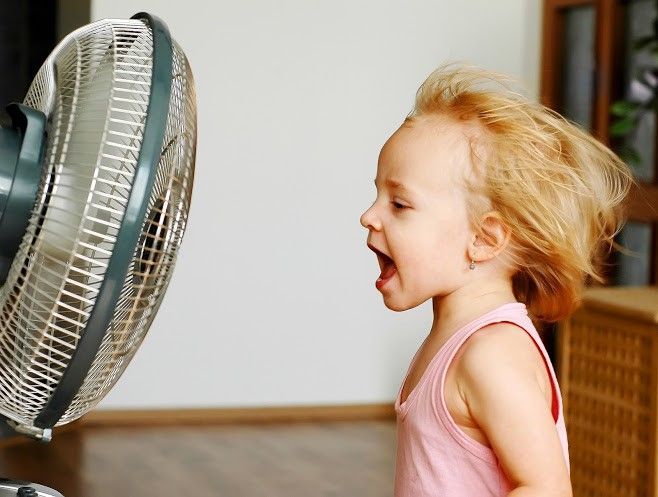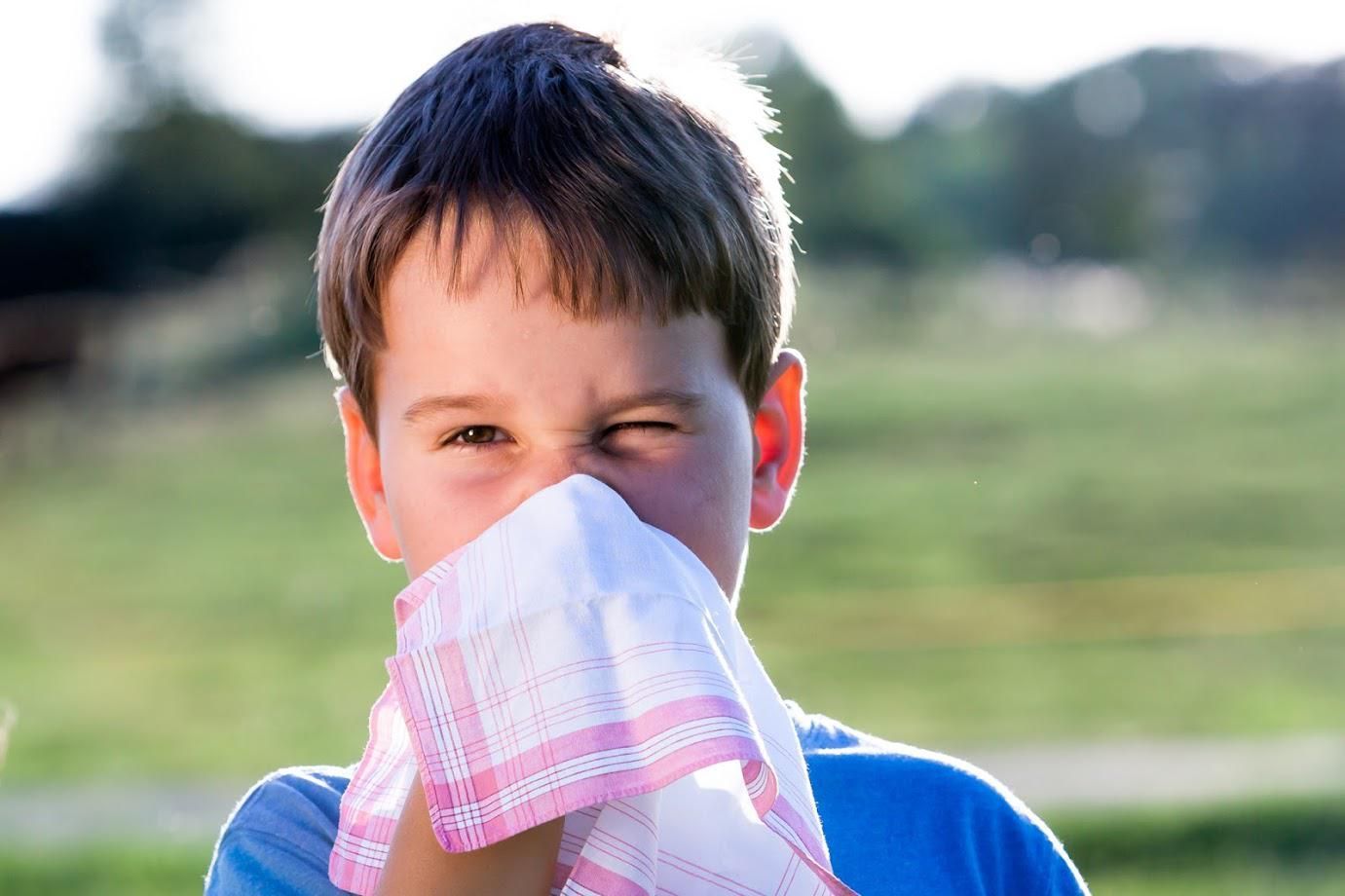Our Blogs

By Connie Hong
•
August 25, 2020
A problem with the throat can make it painful to eat, drink, and swallow. If your child is complaining of pain in the throat, you should take them to the doctor, but you may also want to do your own research first. If your child has pain in their throat, many things could be the cause, but it's likely to be one of these three very common issues. Keep reading to learn what to expect at the doctor. 1. Sore Throat A sore throat can be accompanied by other symptoms including swollen glands in the neck and a hoarse voice. If your child has a sore throat, it might be caused by a viral infection, such as a cold, croup, or the flu. Other causes of a sore throat include: Allergies Dry indoor air Irritants in the air Muscle strain Gastroesophageal reflux disease (GERD) Once a pediatrician has determined the exact cause of your child's sore throat, they can treat your child accordingly. In most cases, a sore throat will go away on its own. If, however, your child complains of a sore throat and has trouble breathing or swallowing, your child should get immediate medical care. 2. Tonsillitis The lymph nodes on the side and back of the throat are called tonsils. Tonsillitis occurs when the tonsils become infected. Besides a very sore throat, other symptoms of tonsillitis include: Bad breath Fever Chills Earaches Headaches Stiff neck Neck and jaw tenderness The tonsils may also appear red and swollen or they might have white or yellow spots. In young children, tonsillitis can cause a decrease in appetite and excessive drooling. The three types of tonsillitis include acute, chronic, and recurrent. Acute tonsillitis can either be viral or bacterial. If the acute tonsillitis is bacterial, a pediatrician can prescribe antibiotics. If your child has chronic or recurrent tonsillitis, a pediatrician might recommend a tonsillectomy, which involves having their tonsils removed. 3. Strep Throat Strep throat is a bacterial infection. Strep bacteria causes nearly one-third of all sore throats. The first symptoms for children with strep throat include a sore throat, fever, painful neck glands, and swollen tonsils. Because the symptoms are similar, you may think your child has tonsillitis. However, after three days, your child might also get the following symptoms: Red and white patches in the throat Headache Loss of appetite Nausea Rash Trouble swallowing Your child will also feel ill in general. Strep throat is very contagious. To minimize the risk of infecting others, you should take your child to the pediatrician right away. The pediatrician will do a rapid strep test and will know the test results within about 5 minutes. If the strep test is positive, the pediatrician will prescribe antibiotics for your child. Left untreated, strep throat could cause complications, such as rheumatic fever, scarlet fever, and kidney problems. If the strep test is negative, the pediatrician will send the sample of fluids from the back of the throat to a lab for a throat culture. A throat culture will help determine the cause of your child's sore throat. No matter what the reason for your child's sore throat, you should ensure they drink plenty of liquids. This will help prevent dehydration. You can also give your child hot tea and warm soups, which will help soothe throat pain. Your child should avoid acidic liquids, such as orange juice and lemonade, which can irritate a sore throat. If your child complains of a sore throat, schedule an appointment with a pediatrician at Advocare Lerch & Amato Pediatrics. For your convenience, we offer after hours appointments in the evenings and on Saturdays.

June 30, 2020
Babies take time to develop, but many factors can cause a baby to be born prematurely. When this happens, they may not be fully equipped to survive the outside world without assistance. In particular, premature lungs can make it impossible or hard for your baby to breathe on their own. If you would like to know more about lung complications associated with premature births, keep reading. 1. Respiratory Distress Syndrome Respiratory distress syndrome is a complication that requires premature babies to need extra oxygen and help breathing because they are not capable of doing it properly on their own yet. The reason respiratory distress syndrome makes it hard for your baby to breathe is because there isn't enough surfactant in the lungs. Surfactant is a naturally-forming liquid that allows lungs to continually take in and release air without the alveoli collapsing after each breath. Babies born before 37 weeks may not have enough surfactant to keep the lungs open after each breath. As a result, the alveoli collapse, reducing the amount of oxygen your baby breaths and increasing the amount of carbon dioxide in their system. 2. Bronchopulmonary Dysplasia If your baby develops respiratory distress syndrome, and needs help to breathe, the device used to help your baby breathe can also cause complications. In particular, it causes swelling and scaring in the lungs. The damage usually occurs because of high oxygen levels and the pressure from the oxygen being pumped into your baby's lungs. This can lead to long-term breathing complications. In fact, this type of lung disease is about just as common as asthma and cystic fibrosis in children. These children may also be more likely to get respiratory infections in the future, such as the flu. Another complication that may arise because of bronchopulmonary dysplasia is fluid buildup in the lungs, which reduces how much air can also fit in the airways. 3. Pneumonia Because premature babies don't always have fully formed lungs, and many other complications can lead to fluid in the lungs, pneumonia is common in premature babies. Pneumonia is an infection in the lung. So as long as your baby has the antibodies to fight the infection, they should be fine. However, if your baby is premature, they may not have acquired your antibodies yet, making their body too weak to fight the infection alone. For this reason, as soon as pneumonia is suspected, diagnosis and treatment needs to begin immediately. Treatment usually consists of antibiotics, and preventative measures include keeping sick people away from the baby. Luckily, pneumonia in newborns is often easily treated and leaves no long-term complications. 4. Apnea You may have heard of sleep apnea, which happens while you are sleeping and causes you to stop breathing for a short time. Premature babies, however, are prone to get a form of apnea known as apnea of prematurity. With this condition, newborn babies randomly and repeatedly stop breathing for 15 to 20 seconds when they sleep. The condition usually affects babies who are born before 35 weeks. Not only does it stop the breathing for a short time, but the condition also drops your baby's heart rate. Typically, babies with this condition frequently have their heart rate drop to below 80 beats per minutes , leading to pale or bluish skin. Treatment usually involves some medications containing small amounts of caffeine and monitoring. In most cases, the condition goes away in a few months and doesn't return. Premature babies can have a lot of complications, especially related to their lungs and breathing. If you would like to know more about premature birth complications, contact us at Advocare Lerch and Amato Pediatrics.

April 27, 2020
Influenza, otherwise commonly known as the flu, is a potentially serious health risk to your child. Therefore, your child should get a flu vaccination. Most children can get the vaccine with little or no problem. Flu vaccines not only protect your child from the flu. They also protect the other people around them, including you, your child's friends, and their teachers. Here is more information about flu vaccines, how they protect your child, and when your child should get one. What Does the Flu Vaccine Do? The flu vaccine protects your child from certain variations of the influenza virus. It is based on the most common influenza strains from the previous season. Even though the flu virus often mutates, the vaccine still provides protection. Flu vaccines are proven to reduce serious cases of the flu. This means less chance of hospitalization, especially with high-risk populations. Does the Flu Vaccine Cause the Flu? No, the flu vaccine does not cause the flu. The vaccine is composed of inactive (dead) versions of the virus. However, some people's immune system may react strongly to the vaccine. This may result in flu-like symptoms, such as body aches and fever, soon after vaccination. Also, the vaccine is not fully effective for about two weeks, so your child could still get the flu during that time. How Old Should Children Be to Get Vaccinated? Most children over six months old can be vaccinated. If your child is under eight, and has never received a flu shot, then two doses, given a month apart, are especially effective. After that, most children and adults can get only one shot per year. While very young infants should not be vaccinated, if you are pregnant, then a flu shot will protect you and your fetus. Can Children With Egg Allergies Be Vaccinated? In the past, people with egg allergies were told that they could not receive the flu shot. This is because the vaccine is developed with eggs. However, current recommendations are that the amount of egg in the vaccine is negligible. People with egg allergies should be fine with the flu vaccine. If your child has severe reactions to eggs, such as asthma, then you may wish to have him or her vaccinated at the doctor's office rather than at a pharmacy or flu shot clinic. Which Children Should Not Be Vaccinated? Most children are eligible for the flu vaccine. However, children with Guillain-Barre Syndrome are usually told to abstain from vaccination. Guillain-Barre syndrome is a rare auto-immune disease that attacks the nerves. If your child has allergies to other components of the vaccine, such as gelatin or antibiotics, then talk to their doctor first. Children who are sick with a fever may need to have their vaccine postponed until they are better. When Should Children Be Vaccinated? The best time for your child to receive a vaccination is before the main part of the flu season starts. This is usually around October. However, your child can be vaccinated at any time of the year. Even if your child receives the vaccine late in the season, he or she still has protection against that year's flu strains. If your child has problems with injections, then he or she may be eligible for a nasal vaccine if any are available. The flu vaccine is a very effective measure to protect your child, and everyone else, from the potential deadly influenza virus. If you are concerned about how this vaccine may affect your child, or whether your child should get vaccinated, then talk to a doctor. The staff and doctors at Advocare Lerch & Amato Pediatrics can answer your questions and concerns about vaccination. We can even give your child a flu shot right in our office. Call us for an appointment during our convenient open hours.

March 27, 2020
Sodium can go from an essential nutrient to a health threat when people consume too much of it. This rule holds true for children as well as adults. Unfortunately, even if you know exactly what your kids eat from one meal or snack to the next, you may not know for certain how much sodium those foods contain. Awareness of this potential health problem can help you recognize where hidden sodium may lurk in your children's diets. This allows you to make any necessary alterations to your home menu and educate your kids about sodium's dangers. Here are some important points to guide your path. Why Kids Get Too Much Sodium Humans require a certain amount of sodium intake just to stay alive. This mineral helps to normalize the water balance of your tissues. Inadequate sodium in the bloodstream leads to muscle cramps, vomiting, nausea, and seizures. Unfortunately, Americans of all ages tend to consume too much sodium. The Centers for Disease Control recommends that individuals consume no more than 2,300 milligrams of sodium per day. However, the American Heart Association reports that American kids consume a daily average of 3,100 milligrams of sodium. What Excess Sodium Does to Children's Bodies Excess sodium can lead to high blood pressure in children. Up to seven percent of children between the ages of 3 and 18 suffer from either pre-hypertension or full-blown hypertension. High blood pressure that goes untreated in childhood often continues into adulthood. Excess sodium also goes hand in hand with obesity. Because sodium causes water retention, it also promotes unhealthy weight gain. The fact that many sodium-heavy processed foods also contain large quantities of fats and sugars only aggravates this problem. Children with underlying health conditions may prove especially vulnerable to excess sodium in the diet. For instance, kids who suffer from kidney disease may already have trouble eliminating sodium through the urine, making them even more prone to hypertension and other sodium-related health risks. What Excess Sodium Intake Looks Like In some cases, excess sodium consumption in your children may make itself known to you through certain telltale signs. For instance, a child who consumes too much sodium may seem eternally thirsty. The child's urine may also appear unusually dark in color, a sign of insufficient water moving through the kidneys. While a number of factors can contribute to childhood obesity, excess sodium consumption can cause weight gain even in the absence of these other factors. If your child gains significant weight or cannot seem to lose extra weight (despite moderate food intake and plenty of exercise), suspect sodium-related water retention. To observe the most obvious warning of excess sodium intake, look no further than your child's plate. Kids who eat a lot of packaged, processed foods usually get more sodium than they need. If your kids routinely buy vending-machine sodas and snacks, bear in mind that these products contain sodium as well. How You Can Moderate Your Children's Sodium Intake You can help your children get the nutrition they need without also getting too much sodium. Start at mealtime by limiting how often you serve standard kids' fare such as pizza and burgers, which typically contain lots of sodium. If your kids can't do without these foods, look for low-sodium cooking options. Most of the foods available on grocery store shelves sport nutritional labels that include the amount of sodium per serving. Count these milligrams as carefully as a dieter might count calories. Make sure that the daily total sodium you serve your kids doesn't exceed the recommended 2,300 milligrams. Kids can watch their own sodium intake once they understand the potential dangers of too much sodium. Educate your kids on healthy eating habits, teach them how to read food labels, and encourage them to learn more on their own about the subject. This knowledge can pave the way for a more health-conscious adulthood. You can go a long way toward safeguarding your children against the potential problems caused by excess sodium. Contact Advocare Lerch & Amato Pediatrics for more information and advice.

February 17, 2020
Even though irritable bowel syndrome (IBS) is commonly associated with adults, IBS is a condition that often shows up in the teen years. Most people report the onset of symptoms of IBS before they reach the age of 35 and many report symptoms in their childhood, and in Western countries, girls and women are more likely to experience IBS than boys and men. Any time your child has issues with digestion, pediatric medical attention is important. You may be able to spot some of the signs of IBS in your child if you listen carefully to their complaints and watch their bathroom habits. Here is a look at some of the signs of IBS every parent of an adolescent should know. Recurrent Complaints of Digestive Issues The initial symptom most parents will recognize is recurrent complaints of digestive issues. Your teen may complain that their stomach hurts every time they eat, that they have diarrhea, feel constipated, or even bloated and gassy. All of these symptoms can be related to IBS, but the key is the issue will be recurrent. Children and teens commonly experience the occasional bout of stomach pain or issues with digestion; this is not out of the norm. However, a teen who has IBS will have periodic issues with digestion that seem to stem from nowhere. For example, your child may have IBS if they experience digestive issues at least 12 weeks in a year, and those weeks do not have to be concurrent. Individuals who have IBS will experience flare-ups, or times when things seem fine and times when symptoms hang around for several days at a time. It is easy to overlook digestive problems that go away, but if the symptoms are returning rather frequently, it could be IBS. Changes in Bowel Movement Patterns or Frequencies IBS is related to issues with the function of the colon or large intestines. The colon is responsible for moving waste through the intestines and out through the rectum. People who have IBS may have either an overactive or underactive colon. The organ may move food through the intestines faster and cause cramping and diarrhea, or it may move too slowly and lead to major issues with constipation. If you are spending a fair amount of time with your teen, you will likely notice if the frequency of their bowel movements changes drastically, especially if they are heading to the bathroom more frequently. Diarrhea-predominant IBS is the most common type of IBS; about a third of diagnosed patients experience diarrhea, and those who do may have at least 12 bowel movements a week. Complaints of Pain That Is Only Relieved After a Bowel Movement With IBS, stomach pain or cramping is a common complaint. The cramping is usually a result of the colon working hard to push food through the digestive tract. However, if your child has constipation-predominant IBS, stomach pain can actually come from the intestines being too full or engorged. If your child is complaining about stomach pain, ask them if the pain subsides after they have had a bowel movement. If the pain does subside, IBS could be to blame if other symptoms are present. For instance, if your teen is having stomach pain combined with diarrhea, IBS could be the issue. Talk to a Doctor About Adolescent IBS IBS is a treatable condition, and lifestyle changes or medications may help your child better control the symptoms. Work with a qualified pediatrician to ensure your child gets the proper diagnosis and treatment. If you believe your child has IBS, contact us at Advocare Lerch & Amato Pediatrics to schedule an appointment.

January 30, 2020
The United States Department of Agriculture recommends the average family of four set aside $1,000 every month for their food budget. For some families, this isn't a problem. Other families, however, may not have as much money in their food budget. Fortunately, there are steps everyone can take that will help stretch their food budget and still provide their family with healthy meals.

January 7, 2020
When your child has an upper respiratory problem, you may automatically think that they are suffering from a cold. However, other conditions like sinus infections and allergies can share the same symptoms. If you try to treat for the wrong one, then your child's symptoms may not go away or could even get worse.

January 7, 2020
School is a great place for children to learn, but unfortunately, schools can also be a breeding grounds for germs, such as the viruses that cause the flu and the common cold. In the U.S., children miss about 22 million school days each year due to the common cold alone. So how do you protect your child from illness in such a busy school environment? Start by following these tips.

January 7, 2020
As a new parent, you face a steep learning curve. Something as simple as feeding a baby or getting enough sleep can seem especially daunting. Don't worry; many new parents have questions about feeding a new baby and many wonder if they are doing the right things when providing for the needs of an infant.

December 16, 2019
Attention-deficit disorder (ADD) and attention-deficit hyperactivity disorder (ADHD) are conditions with complex roots in neurobehavior, psychology, and development. Children who have AD/HD showcase persistent impulsiveness and inattention. Depending on their unique presentation, they may also display hyperactivity.

